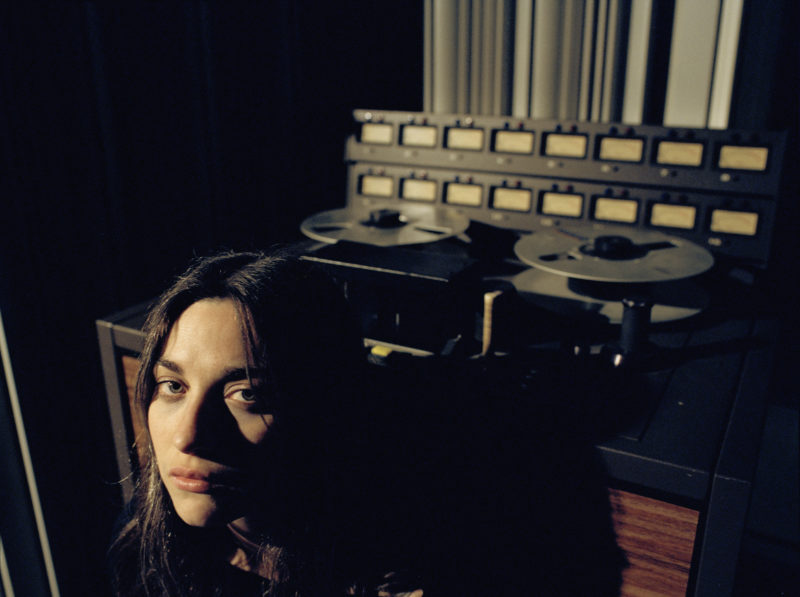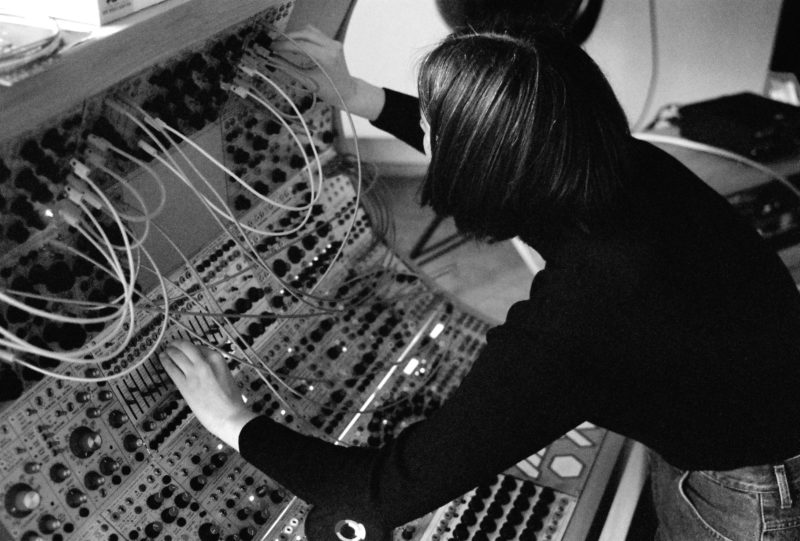KALI MALONE

Ahmed Brecht
What will you perform on the Eastern Daze festival?
Kali Malone
Lucy Railton and Zach Rowden will be joining me for this performance and we’ll play a new piece for cello, contrabass, buchla and reed organ.
ab
Cast of Mind is a wonderful and strong title and one that really fits the music. Where does the title originate from?
km
The phrase has been in my head for several years now but I’m not really sure where I first came across it. I’ve been using it as an umbrella term to house a collection of sonic experiments and writings that circulate around a specific tuning system and idea of harmonic architecture.

ab
Your work seems to rely both on electronic instruments and acoustic instruments. What kind of relationship do you have with the tools you choose to create music with?
km
The mapping of the instruments I use completely determines my mode of composition. Sometimes I try to implement the methods I’ve previously embraced with another interface, but the result is always fluid and most genuine when I take time to reconfigure my ways to meet the nature of the instruments’ design.
ab
It seems to me that you are attracted to instruments that, ideally, provide you with the possibility of ‘casting one’s mind’; i.e. instruments with a wide spectrum – orchestral, powerful. Is your choice of instrumentation a deliberate part of the composition, or is it rather the other way round, in the sense that certain instruments lead you to choices of pitch / melodic / harmonic themes?
km
I’m definitely more attracted to instruments that are tuneable, polyphonic, and have some amount of harmonic sustain because I foremost approach music from a harmonic perspective rather than from a rhythmical or gestural place. Before working with the instrument, I usually develop some very structural idea of how the piece should be – as if writing a code. But as soon as I make contact with the instrument and meet the musician, that code compromises and absorbs the unique character of the instrument, the musician, and all their fragilities and inconsistencies that I couldn’t have planned for. It’s at this point of intersection where the identity and intention of the piece becomes apparent.
ab
If you were the conductor of an orchestra performing contemporary classical music, what repertoire would you choose and why?
km
Some years ago I was the conductor of a small orchestra where we only played the Pauline Oliveros' piece To Valerie Solanas And Marilyn Monroe In Recognition Of Their Desperation. This was a really fascinating position to be in because the piece is designed to directly create hierarchical conflict within the orchestra. As the conductor, you feel the sublime power of swinging your arm and making the orchestra roar then instantly muting musicians at your will, but also the insecurity that at any moment the musicians could rebel and not adhere to your order anymore. I’m interested in orchestral works that challenge the power dynamics and economic configuration of the orchestra, that attempt to see beyond the parameters and goals that the encasing system has predetermined. For example, Eliane Radigue’s recent orchestral piece Occam Ocean doesn’t even really have a conductor or physical score; the musicians sit in circles of their own instrument group and mutually influence/control each other through sustained unison and subtle beating interference patterns. Even though the musicians appear to have more agency in this format, the music is still a clear rendering of Radigue’s design, and the removal of the standard authoritative role of the conductor makes this design seem omnipresent when self-enforced.
ab
“Passion without precision is chaos”, says Jack Nicholson’s character Daryl Van Horne in The Witches of Eastwick. Do you feel that working as a composer and performer demands total precision, or is chaos necessary as well?
km
More so than the idea of chaos, I’ve been concerned with the contrast of indulgence and restraint. Most of my current practice is to persist through a predetermined structure and do my best to keep it from collapsing. It takes a lot of endurance to resist collapse, which for me would mean unnecessary indulgence, the unhinging of intention, or the loss of commitment. But of course I’ve only arrived to this rigid process of precision through knowing the indulgence of chaos.
ab
A bit in the same vein, I was wondering to what extent improvisation does play a role in your solo music.
km
While the harmonic material is strictly defined, I always leave certain elements of the music open, usually the time-domain or the timbre. I find elements of openness make room for the potential of a deeply personal and prophetic sensation to emerge around the other predetermined parameters.

ab
Is setting important for you in order to create music?
Is there a link between the carefully crafted pieces on Cast of Mind and the city of Stockholm, its street grid, its organisation?
km
My music is completely dependent on the place where I am and the communities I engage with. The subtle structures of environment definitely affect you on a core level, but I don’t think that impact can be so easily described with language. On a practical level, Cast of Mind wouldn’t have been possible without the accessibility to Stockholm’s unique circle of open-minded musicians and the state-funded Buchla synthesisers. However, the first iteration of Cast of Mind was created for and first performed at the benefit show for the Oakland Ghostship fire victims, presented by Rhinoceropolis in my hometown of Denver, Colorado.
ab
Are there any projects in the near future involving your music or the XKatedral label you’d like to tell us about?
km
Soon I have a triple CD set of organ music coming out on iDEAL Recordings, an LP of a new collaboration with producer Acronym, and a vinyl reissue of Organ Dirges 2016 – 2017 out on Ascetic House. XKatedral also has a handful of exciting releases coming out later this fall.